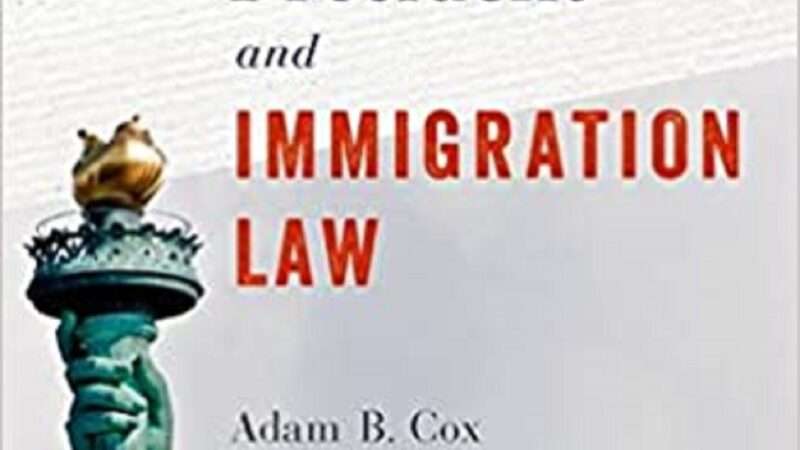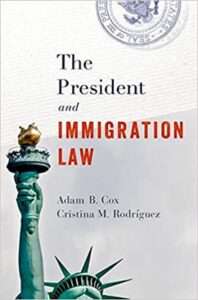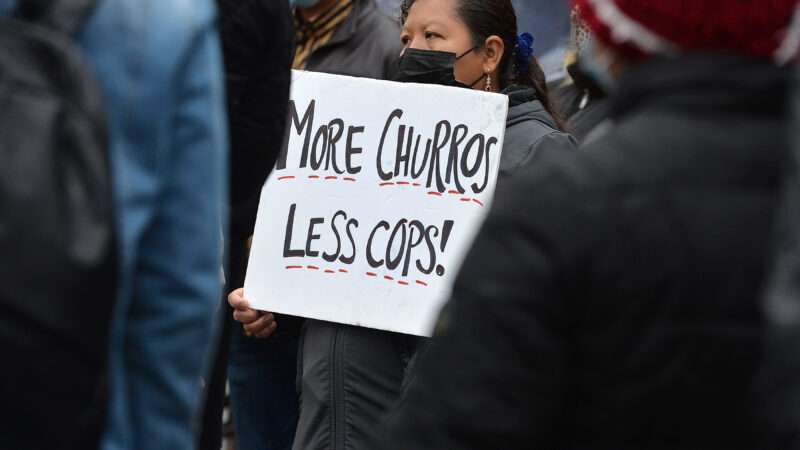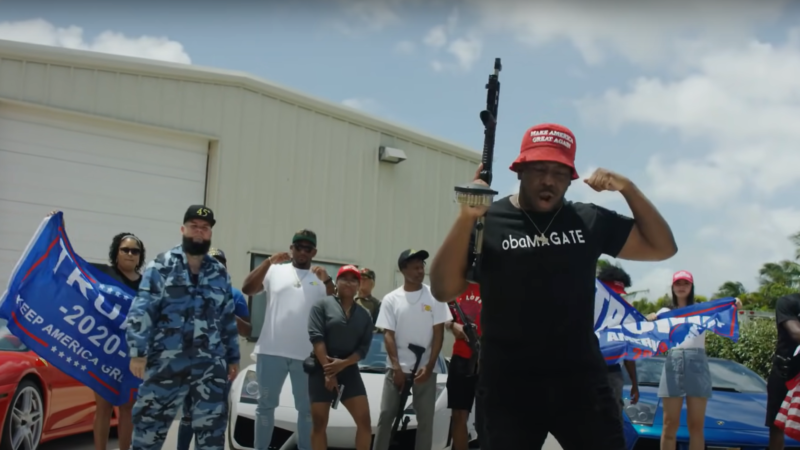From In re Piland, decided by the Michigan Court of Appeals Thursday, in an opinion by Judge Michael J. Kelly, joined by Presiding Judge Thomas C. Cameron and Judge Kristen F. Kelly:
Respondents appeal … the orders terminating their parental rights to their children, MP, JP, and VP ….
On February 6, 2017, respondents’ third child, AP, was born at their home with the assistance of a midwife. Less than 20 hours later, on February 7, 2017, the midwife observed that AP was showing signs of jaundice on her face and chest. Concerned about the presence and severity of jaundice within 24 hours of AP’s birth, the midwife strongly emphasized to respondent-mother that the baby should be seen by a doctor. Respondent-mother refused, telling the midwife that “God makes no mistakes, our baby is fine.” Respondent-mother conferred with respondent-father and, together, they declined to seek medical care for AP. Multiple witnesses, including respondents, testified that respondents’ religious beliefs precluded them from seeking manmade medical care for themselves or for their children. Instead, respondents relied on faith-based or divine healing.
{At the time of AP’s death, respondents were part of two religious groups, Free Saints Assembly and Faith Tech Ministries. They testified that both groups supported divine healing, but noted that neither group prohibited a person from seeking manmade medical care. Rather, it was up to each individual to determine whether they would rely solely on divine healing or would utilize a combination of manmade and divine healing.} …
[T]hroughout the case, respondents continued to object to their children receiving medical care. One child went to the hospital for an apparent allergic reaction. He was prescribed an EpiPen, which respondents adamantly stated that they would not rely on even if he were showing signs of an allergic reaction. When another child broke his foot, respondent-mother told him that he did not have a broken bone because if he believed in and obeyed God, his bones would not break. Respondents also objected to the lifesaving medical treatment that VP received after she was removed from respondents care. The record reflects that, like AP, she was jaundiced within 24 hours of her birth. She was diagnosed with hemolytic disease of the infant. To treat it, she required seven days of phototherapy and required an exchange transfusion. Without the treatment she would have died. Even knowing that, respondents maintained that they would not have sought medical treatment for her. At trial, respondents testified that under no circumstances would they seek manmade medical care for their children.
AP died, and the state sought to terminate the parents’ rights to the other three children (two older ones, who were under seven years old, and VP, who was born about 1½ years later). The parents wanted to have the jury instructed under a Michigan statute, MCL 722.634, that provides that:
A parent or guardian legitimately practicing his religious beliefs who thereby does not provide specified medical treatment for a child, for that reason alone shall not be considered a negligent parent or guardian.
(Termination decisions are apparently made by a jury under Michigan law, though to my knowledge most states don’t use a jury for that; and the statute does generally apply to child protection cases.)
The trial court had held that the statute didn’t apply in this case, because of the word “legitimately”:
Now, the Court believes that for a religious belief to be legitimate, it must conform to the law or rules…. [T]here needs to be at least some recognized standards or acceptable, uh—recognized or acceptable standards that we are gaging those relief—beliefs against to determine whether or not those beliefs are legitimate.
The legislature, in my estimation, did not intend to provide this exception to all strongly held beliefs. They also didn’t intend to provide this exception to all strongly held religious beliefs, but only those beliefs that were in accordance with practicing a religion, uh, or religious rules or laws, or in—in conformance with acceptable religious standards, and acceptable religious practices.
Individual acts of faith or following subjected—subjective individualized beliefs do not constitute legitimately practicing your religious beliefs….
The Court is not, um, ruling in this instance that the [respondents’] faith is not heartfelt or dis—dishonest. Uh, they have been steadfast an—and earnest in their beliefs. However, those beliefs are not supported by any law, doctrine, or cannon of any religion. They are religious in nature, but that does not rise to the level of a legitimate practicing of a religious belief.
Their own assembly, or sect, or—or group, made it clear that medical treatment is not prohibited by the tenants of their faith. And the [respondents] have taken scripture and have personally interpreted in this way, which is not covered by MCL 722.634.
The Court, therefore, believes that the proffered instruction based upon the statute is, therefore, not warranted. [Emphasis added.]
But the court of appeals disagreed:
We conclude that the trial court’s view that the word “legitimately” means that a parent or guardian’s religious beliefs must be legitimate is unconstitutional and must be rejected….
The trial court’s interpretation of the word “legitimately,” as used in MCL 722.634, is that the religious beliefs being practiced must be legitimate. And, that, in order to be legitimate, those beliefs had to be part of the doctrine or tenants of a religion as opposed to a parent or guardian’s subjective interpretation of scriptures. The trial court’s interpretation, however, renders the statute unconstitutional. It is well-established that “government has no role in deciding or even suggesting whether the religious ground” for a person’s actions “is legitimate or illegitimate.” Masterpiece Cakeshop, Ltd. v. Colorado Civil Rights Com’n (2018). Instead, in order “to respect the [United States] Constitution’s guarantee of free exercise [of religion], [the government] cannot … act in a manner that passes judgment upon or presupposes the illegitimacy of religious beliefs and practices.” Id. See also Church of the Kukumi Babalu Aye, Inc. v. City of Hialeah (1993) (stating that “religious beliefs need not be acceptable, logical, consistent, or comprehensible to others in order to merit First Amendment protection.”). As our Supreme Court explained in People v. DeJonge (Mich. 1993):
This Court must accept a worshiper’s good-faith characterization that its activity is grounded in religious belief because “[i]t is not within the judicial ken to question the centrality of particular beliefs or practices to a faith, or the validity of particular litigants’ interpretations of those creeds.” Hernandez v. Comm’r of Internal Revenue (1989). This must be so because “[m]en may believe what they cannot prove. They may not be put to the proof of their religious doctrines or beliefs. Religious experiences which are as real as life to some may be incomprehensible to others.” [U.S. v.] Ballard (1944).
Nor is religious orthodoxy necessary to obtain the protection of the Free Exercise Clause. Religious belief and conduct need not be endorsed or mandated by a religious organization to be protected. Indeed, because popular religious beliefs are rarely threatened by elected legislators, the Free Exercise Clause’s major benefactors are religious minorities or dissidents whose beliefs and worship are suppressed or shunned by the majority. To hold otherwise would be to deny that “Religion … must be left to the conviction and conscience of every man….” [Footnotes omitted.]
See also Frazee v. Illinois Dep’t of Employment Security (1989) (noting that “the Free Exercise Clause does not demand adherence to a tenet or dogma of an established religious sect,” and rejecting as improper the state’s contention that, although the appellant’s conviction was religious, it was “inadequate because it was not claimed to represent a tenet of a religious organization of which he was a member.”). As is clear from the above authority, the trial court improperly held that respondents’ religious beliefs lacked legitimacy solely because their beliefs were not represented by a tenet or rule of a religious organization.
We also hold that the trial court’s interpretation is inconsistent with the statutory language…. According to Merriam-Webster’s Collegiate Dictionary (11th ed.), “legitimate” is defined as follows:
1 a: lawfully begotten … 2: being exactly as proposed: neither spurious or false … 3 a: accordant with law or established legal forms or requirements < a ~ government b: ruling by or based on the strict principle of hereditary right < a ~ king 4: conforming to recognized principles or accepted rules and standards … 5: relating to plays acted by professional actors but not including revues, burlesque, or some forms of musical comedy.
The trial court relied on the third definition because the court was considering the meaning of the word “legitimate” as it would be used to modify religious beliefs formed by association with a religious organization. That makes sense as that definition clearly relates to the structure of organizations, such as governments and monarchies. However, the word “legitimately” modifies the word “practicing.” Therefore, by interpreting the word in connection with “religious beliefs” as opposed to the practice of religious beliefs, the trial court misconstrued the statute.
The correct inquiry requires consideration of what it means to be “legitimately practicing” a religious belief. In relevant part, to “practice” is to “carry out, apply < ~ what you preach >” Merriam-Webster’s Collegiate Dictionary (11th ed.). Thus, the only definition of “legitimate” that makes sense in the context that it is used is the second definition, i.e., “being exactly as proposed: neither spurious or false.” Together, then, in order to be “legitimately practicing” his or her religious beliefs, the parent or guardian must have been actually practicing his or her religious beliefs at the time that he or she did not provide his or her child with specified medical treatment. And, if a rational view of the evidence supports that finding, an instruction in accordance with MCL 722.634 is required.
The record is replete with testimony showing that respondents were actually, i.e., legitimately, practicing their religious beliefs when they did not seek medical treatment for AP. [Factual details omitted. -EV]
{By so holding, we are not depriving the jury from making its own determination as to whether respondents were legitimately practicing their religious beliefs. The record plainly indicates that they sought medical treatment for themselves, including once when respondent-father went to urgent care to have glass shards removed from his arm and to have the injury “glued” and bandaged. Both respondents also rely on prescription eyewear. Finally, for the births of their first three children, respondents sought and consented to treatment by a midwife. Although they rejected some treatment options, they consented to others, including routine checks of respondent-mother’s blood pressure and evaluation of the fetal heartbeat. They also had both of their older children circumcised by a medical professional. A jury could very well conclude that respondents’ decision to provide themselves with medical care, but to deny it to their children is evidence that their religious beliefs were not being legitimately practiced. The court and the lawyers, however, should take care not to suggest that the legitimacy of respondents’ religious beliefs is a matter for consideration by the jury.}
As an alternative basis for its decision denying the request for a jury instruction based on MCL 722.634, the trial court sua sponte held that the statute was unconstitutional because it impermissibly interfered with AP’s constitutional right to life. We disagree. Notably, MCL 722.634 does not preclude consideration of the parent or guardian’s decision to not provide specified medical treatment. Instead, the statute only precludes that from being the only, i.e., the sole, reason for determining that the parent or guardian is negligent.
Therefore, the jury can consider the decision or failure to provide specified medical treatment in connection with other evidence showing that the parent or guardian is a negligent parent or guardian. Additionally, MCL 722.634 expressly states that a court is not precluded “from ordering the provision of medical services or nonmedical remedial services recognized by state law to a child where the child’s health requires it nor does it abrogate the responsibility of a person required to report child abuse or neglect.” Thus, although the statute offers some protection to a parent or guardian legitimately practicing his or her religious beliefs, it nevertheless balances the state’s need to intercede to protect the child’s health.
Consequently, the statute only precludes consideration of the failure to provide medical support from being the only consideration, permits the state to intervene to protect the child’s health, and it does not exempt mandatory reporters from reporting abuse or neglect, so the child’s health and safety is not unprotected. Again, MCL 722.634 is not an absolute exception. A jury instructed in accordance with MCL 722.634 is not required to return a finding of no jurisdiction….
I think the analysis is correct; the Religion Clauses preclude the government, including courts, from preferring beliefs that are endorsed by the established rules of a religious organization differently from beliefs that are the product of individual moral judgment. We have an individualistic law of religious exemptions, rather than a denominational-hierarchy-focused law. (One might view it, figuratively, as a Protestant law rather than a Catholic law.)
The Michigan statute may well be a bad idea, and I think that, absent such a statute, removing children from the care of parents who refuse to provide medical care is constitutional. Under the Free Exercise Clause, such a rule would be neutral and generally applicable and thus valid, I think. And even under state statutes or constitutional provisions that presumptively require religious exemptions, that presumption would be rebutted here, since such removal is narrowly tailored to the compelling interest in preserving children’s life and health.
But once such a statute is present, the Michigan Court of Appeals is correct that it can’t distinguish religious objectors based on whether their ostensible coreligionists share their views.

from Latest – Reason.com https://ift.tt/3gjArc8
via IFTTT




